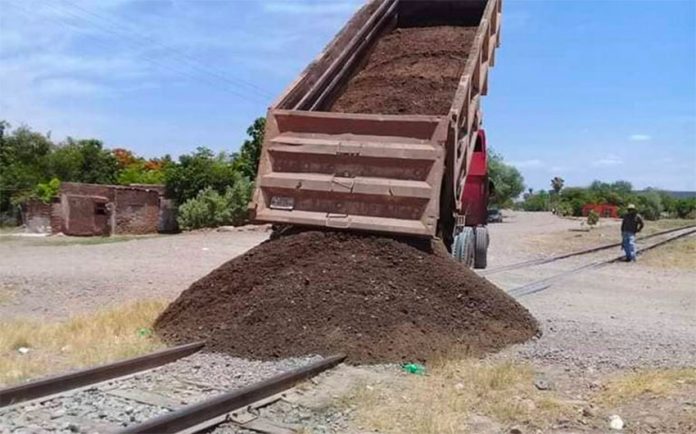President López Obrador said Monday that “corrupt politicians” might be behind the ongoing protests of Yaqui indigenous people in Sonora.
The president announced August 6 the creation of a justice commission that will be responsible for returning expropriated land to the Yaqui people, delivering basic services to them and rerouting a gas line.
But some members of the Yaqui community were unhappy with the federal government’s commitments and last week reinstalled a blockade of federal Highway 15 and placed obstacles on train tracks connecting Nogales, Sonora, to Nogales, Arizona.
Disgruntled Yaquis also reinstated a blockade of tracks in the municipality of Guaymas that was first set up in mid-July.
They are demanding that the government fully compensate them for ceding land for the construction of a range of infrastructure projects and fulfill commitments for the social development of their eight towns: Cócorit, Bácum, Vícam, Pótam, Tórim, Huírivis, Ráhum and Belem.
Speaking at his morning new conference on Monday, López Obrador said his government is now seeking a “general agreement” with the Yaqui people that will see the blockades lifted.
“I was with the Yaqui people, … I signed a justice commitment … that includes resolving all their demands,” he said before adding that the residents of one town are divided about the government’s plan.
“It seems that [one] group doesn’t agree with participating in what is being planned … or they don’t have the proper information. … I also feel that there is manipulation: corrupt politicians, those who always take advantage of the moment, always get involved in these cases,” López Obrador said.
“Do not allow yourselves to be manipulated by anyone,” he urged the Yaqui community without specifying exactly who might be trying to influence them.
The president said the head of the National Institute of Indigenous Peoples, Adelfo Regino, would travel to Sonora to speak with the Yaqui people and reiterate the government’s commitment to them.
“He will be there today, … he’s my representative, he has a mandate, … he’s my stand-in in the commission that was created to attend to the demands of the Yaqui people. … The agreements they reach have all the support of the presidency,” López Obrador said.
He ruled out any possibility that force would be used to clear the blockades, stating that “it’s better to convince and persuade than to impose.”
That position is likely to draw the ire of the private sector, particularly companies that export goods to the United States via Sonora.
The Confederation of Industrial Chambers said that more than 2,000 train cars carrying millions of dollars worth of agricultural products and manufactured goods have been held up by the blockades.
Grain, auto parts, beer industry supplies and school textbooks are among the goods that have been stranded.
Source: Reforma (sp), El Sol de México (sp)
